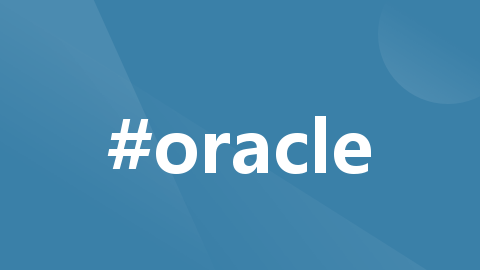
6款支持中文开源OCR软件的简单使用
OCR(optical characterrecognition)光学字符识别,是指电子设备(例如扫描仪或数码相机)检查纸上打印的字符,然后用字符识别方法将形状翻译成计算机文字的过程;即,对文本资料进行扫描,然后对图像文件进行分析处理,获取文字及版面信息的过程。如何除错或利用辅助信息提高识别正确率,是OCR最重要的课题。衡量一个 OCR 系统性能好坏的主要指标有:拒识率、误识率、识别速度、用户界面
文章目录
前言
OCR(optical character recognition)光学字符识别,是指电子设备(例如扫描仪或数码相机)检查纸上打印的字符,然后用字符识别方法将形状翻译成计算机文字的过程;即,对文本资料进行扫描,然后对图像文件进行分析处理,获取文字及版面信息的过程。
如何除错或利用辅助信息提高识别正确率,是OCR最重要的课题。
衡量一个 OCR 系统性能好坏的主要指标有:拒识率、误识率、识别速度、用户界面的友好性,产品的稳定性,易用性及可行性等。
开源的 OCR 软件有很多种,在 github 上发现有很多项目支持中文汉字识别,以下面 6 个开源项目为例,测试使用 OCR 软件。
一、Tesseract OCR
Tesserat OCR 是一款可在各种操作系统运行的 OCR 引擎,这是一款开源软件,在Apache 许可下发布。最初由惠普在20世纪80年代作为专有软件开发,在2005年以开源的形式发布,从2006年开始由谷歌赞助,开发语言为 C++。
初始的版本只支持英文,版本 2.0 又增加了六种西方语言(法语、意大利语、德语、西班牙语、巴西葡萄牙语、荷兰语),版本 3.0 扩展了更多语言支持,包括表意文字(中文和日语)和从右到左(如阿拉伯语,希伯来语),以及更多语言。最终到版本 4.0,已经可以支持 116 种语言。版本 5.0 于 2021 年发布,显著地提高了性能,更多关于版本的细节可以查看:https://tesseract-ocr.github.io/tessdoc/ReleaseNotes.html
1.1 安装
-
Linux
sudo add-apt-repository ppa:alex-p/tesseract-ocr-devel sudo apt-get update sudo apt install tesseract-ocr-chi-sim -
Windows
-
Mac
brew install tesseract
1.2 运行
下面以在windows 运行为例,通过命令行
tesseract.exe C:\Users\root\Desktop\emoj.jpg C:\Users\root\Desktop\hello -l chi_sim
识别需要指定语言,还需要对应的训练数据,官方提供已经训练好的数据:https://github.com/tesseract-ocr/tessdata
以下面表情包为例:测试识别结果

识别结果:
和牛局 “”砚害 1或哟梧槽!
哦哟,草泥马的,这么6 好好好 !
可以发现使用官方提供的训练数据,还是有很大的误差,在 github 上也有人提出疑问中文精确度不高:ocr quality on chi_sim,但到现在也没解决这个问题,所以想要更精确的结果还需要自己训练数据。
二、PaddleOCR
PaddleOCR 是 百度开源深度学习平台 Paddle 旗下 一款 OCR 软件,于 2020.5 月开源,其特点就是超轻量级中文OCR模型,后面拓展到支持 80 多种语言识别,开发语言是 Python。
在线体验地址:https://www.paddlepaddle.org.cn/hub/scene/ocr
文档:https://github.com/PaddlePaddle/PaddleOCR/blob/release/2.5/doc/doc_ch/quickstart.md#21
2.1 安装
pip install paddlepaddle
pip install paddleocr
2.2 运行
paddleOCR 支持命令行
paddleocr --image_dir emoj.jpg --lang ch --use_gpu false
也支持python 脚本,可以将结果可视化
from paddleocr import PaddleOCR,draw_ocr
# Paddleocr supports Chinese, English, French, German, Korean and Japanese.
# You can set the parameter `lang` as `ch`, `en`, `fr`, `german`, `korean`, `japan`
# to switch the language model in order.
ocr = PaddleOCR(lang='ch', use_gpu=False) # need to run only once to download and load model into memory
img_path = 'emoj.jpg'
result = ocr.ocr(img_path, cls=False)
for line in result:
print(line)
# draw result
from PIL import Image
image = Image.open(img_path).convert('RGB')
boxes = [line[0] for line in result]
txts = [line[1][0] for line in result]
scores = [line[1][1] for line in result]
im_show = draw_ocr(image, boxes, txts, scores, drop_score=0, font_path='C:\\Windows\\Fonts\\simfang.ttf')
im_show = Image.fromarray(im_show)
im_show.save('result.jpg')

三、EasyOCR
EasyOCR 是一个用于从图像中提取文本的 python 库,它是一种通用的 OCR ,可以读取图片中的自然场景文本和密集文本。目前支持80多种语言,并正在增加中。
在线使用及支持语言编码:https://www.jaided.ai/easyocr/
3.1 安装
pip install easyocr
3.2 运行
运行前需要下载文本检测和语言模型文件
文本检测:https://github.com/JaidedAI/EasyOCR/releases/download/pre-v1.1.6/craft_mlt_25k.zip
简体中文:https://github.com/JaidedAI/EasyOCR/releases/download/v1.3/zh_sim_g2.zip
繁体中文:https://github.com/JaidedAI/EasyOCR/releases/download/pre-v1.1.6/chinese.zip
英文:https://github.com/JaidedAI/EasyOCR/releases/download/v1.3/english_g2.zip
将下载文件解压到 C:\Users\<用户名>\.EasyOCR\model,可通过 --model_storage_directory 修改目录
easyocr -l ch_sim en -f emoj.jpg --detail=1 --gpu=False
import easyocr
from paddleocr import PaddleOCR, draw_ocr
img_path = 'emoj.jpg'
reader = easyocr.Reader(['ch_sim','en']) # this needs to run only once to load the model into memory
result = reader.readtext(img_path)
from PIL import Image
image = Image.open(img_path).convert('RGB')
boxes = [line[0] for line in result]
txts = [line[1] for line in result]
scores = [line[2] for line in result]
im_show = draw_ocr(image, boxes, txts, scores, drop_score=0, font_path='C:\\Windows\\Fonts\\simfang.ttf')
im_show = Image.fromarray(im_show)
im_show.save('result2.jpg')

四、chineseocr
实现功能
- 文字方向检测 0、90、180、270度检测(支持 dnn/tensorflow)
- 支持(darknet/opencv dnn /keras)文字检测,支持 darknet/keras 训练
- 不定长 OCR 训练(英文、中英文) crnn\dense ocr 识别及训练 ,新增 pytorch 转 keras 模型代码(tools/pytorch_to_keras.py)
- 支持 darknet 转 keras , keras 转 darknet , pytorch 转 keras 模型
- 身份证/火车票结构化数据识别
- 新增 CNN + ctc 模型,支持 DNN 模块调用 OCR ,单行图像平均时间为 0.02 秒以下
4.1 安装及报错
从 github 上下载源码,执行 python app.py 出现以下问题
-
文件不存在报错
File "h5py\_objects.pyx", line 54, in h5py._objects.with_phil.wrapper File "h5py\_objects.pyx", line 55, in h5py._objects.with_phil.wrapper File "h5py\h5f.pyx", line 88, in h5py.h5f.open OSError: Unable to open file (unable to open file: name = 'E:\tmp\chineseocr\models\text.h5', errno = 2, error message = 'No such file or directory', flags = 0, o_flags = 0)需要下载模型文件,复制文件夹中的所有文件到models目录
-
百度网盘: https://pan.baidu.com/s/1gTW9gwJR6hlwTuyB6nCkzQ
-
other-links: http://gofile.me/4Nlqh/fNHlWzVWo
-
-
字符串属性报错
original_keras_version = f.attrs['keras_version'].decode('utf8') AttributeError: 'str' object has no attribute 'decode'解决方法:
pip uninstall h5py pip install h5py==2.10.0 -
成功开启 web 服务,但是编码错误,报错如下
'gbk' codec can't decode byte 0x80 in position 833: illegal multibyte sequencegithub 已经有人碰到这种问题:win10+cuda10.0+py3.68,keras版本的ocr 访问 http://127.0.0.1:8088/ocr报错
解决方法:https://juejin.cn/post/6844903700079575047
在windows下, 可以在Python安装目录下的Lib/site-packages目录中,新建一个sitecustomize.py文件(也可以建在其它地方,然后手工导入,建在这里,每次启动Python的时候设置将自动生效),内容如下:
import _locale _locale._getdefaultlocale = (lambda *args: ['en_US', 'utf8'])
4.2 运行
访问 http://localhost:8080/ocr,上传图片

五、chineseocr_lite
超轻量级中文 ocr,支持竖排文字识别, 支持 ncnn、mnn、tnn 推理 (dbnet(1.8M) + crnn(2.5M) + anglenet(378KB)) 总模型仅 4.7M
作者还提供了不同语言环境下的demo
5.1 安装
下载源码,执行 pip install -r requirements.txt
5.2 运行
执行 python backend/main.py,成功运行后,访问 http://localhost:8089

六、CnOCR
CnOCR 是 Python 3 下的文字识别(Optical Character Recognition,简称OCR)工具包,支持简体中文、繁体中文(部分模型)、英文和数字的常见字符识别,支持竖排文字的识别。自带了20+个 训练好的模型,适用于不同应用场景,安装后即可直接使用。同时,CnOCR也提供简单的训练命令供使用者训练自己的模型
6.1 安装
直接运行 pip install cnocr 出现了 缺少 protobuf compiler 的错误。
因为缺少 protobuf ,安装 onnx 报错,先从源码安装 protobuf
git clone https://github.com/protocolbuffers/protobuf.git
cd protobuf
git checckout v3.13.0
git submodule update --init --recursive
cd cmake && mkdir build && cd build && cmake-gui ..
修改cmake 选项
CMAKE_INSTALL_PREFIX D:\softwareInstalled\protoc
protobuf_BUILD_SHARED_LIBS ON
在build 目录下执行
mingw32-make & mingw32-make install
将 D:\softwareInstalled\proto\bin 和 D:\softwareInstalled\proto\lib加入到环境变量PATH 以防 Cmake 找不到
set CMAKE_ARGS="-DProtobuf_LIBRARIES=D:\softwareInstalled\protoc\lib"
pip install onnx==1.10.0
pip install cnocr
6.2 运行
from cnocr import CnOcr
from paddleocr import PaddleOCR, draw_ocr
import numpy as np
img_path = 'emoj.jpg'
ocr = CnOcr()
result = ocr.ocr(img_path)
print(result)
from PIL import Image
image = Image.open(img_path).convert('RGB')
boxes = [line['position'] for line in result]
txts = [line['text'] for line in result]
scores = [line['score'] for line in result]
im_show = draw_ocr(image, boxes, txts, scores,drop_score=0, font_path='C:\\Windows\\Fonts\\simfang.ttf')
im_show = Image.fromarray(im_show)
im_show.save('result6.jpg')

七、总结
- 以上识别只是使用最基本的官方提供的模型,而且用的是 CPU ,更精确的识别可以通过参数或者自己训练模型来实现
- 从上面项目可以看到,除了 Tesserat OCR 用的 C/C++,其它都是用的 python ,可见 python 在机器学习这一块的重要性
- 支持多种语言的库都要指定语言编码,而中文编码各不相同,例如 Tesseract 和 Easyocr 中文简体编码为 chi_sim, PaddleOCR 为 ch , 在使用前要注意语言编码
参考
更多推荐
 已为社区贡献4条内容
已为社区贡献4条内容









所有评论(0)